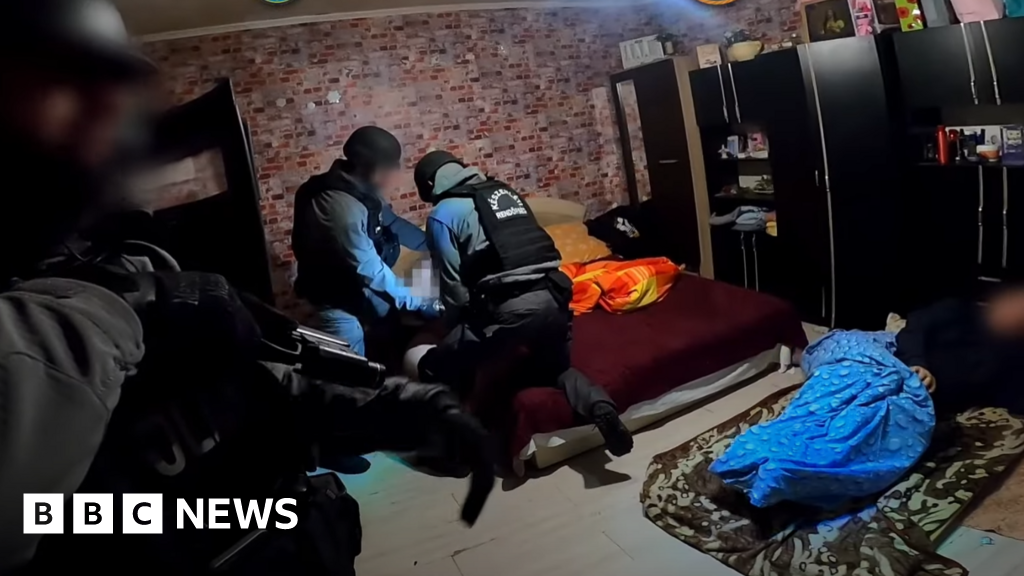ARTICLE AD BOX
Image source, Getty Images
Image caption, Steve Bannon has not publicly commented on Tuesday's vote in the House Select CommitteeA US House of Representatives committee investigating the 6 January Capitol riot has unanimously supported holding a onetime top aide of ex-President Donald Trump in contempt of Congress.
Steve Bannon was summoned to testify before the panel, but refused to do so.
If the full chamber approves the matter later this week, it would be referred to justice department, which has the final say on bringing charges.
If convicted, Mr Bannon could face a fine and up to one year in prison.
Mr Bannon - a former right-wing media executive who became Mr Trump's chief strategist - has not publicly commented on Tuesday's vote in the nine-member House select committee.
All two Republicans and seven Democrats on the panel backed holding him in contempt.
In her opening remarks, congresswoman Liz Cheney, a Wyoming Republican and vice-chair of the committee, said Mr Bannon had had "substantial advance knowledge of the plans" for the protest on 6 January and of Mr Trump's plans to discredit the presidential election result.
Mr Bannon, 67, was fired from the White House in 2017, and was not in government at the time of the riot.
Mr Trump has urged former aides to reject the House committee's requests, claiming the right to withhold information because of executive privilege - a legal principle that protects many White House communications.
He filed a lawsuit on Monday seeking to block the House inquiry from obtaining records from the US National Archives.
President Joe Biden's administration says Mr Trump has no legitimate privilege claim.
During a mostly peaceful protest, Mr Trump's supporters stormed the Capitol building to disrupt certification of Mr Biden's election victory over Mr Trump.
Hundreds of supporters of the former president have since been arrested.
Subpoena documents quoted Mr Bannon as saying on his radio show on the eve of the riot "all hell is going to break loose tomorrow".
Mr Bannon has repeatedly said he has no plans to appear before the committee.
Democrats argue that Mr Bannon is stalling to push back proceedings until after the midterm elections in November 2022, which may alter the balance of power in the House, which is the lower chamber of Congress.
Contempt of Congress cases are notoriously difficult to litigate - the last time such a prosecution took place was in 1983 against a Reagan administration official.

 3 years ago
29
3 years ago
29








 English (US)
English (US)